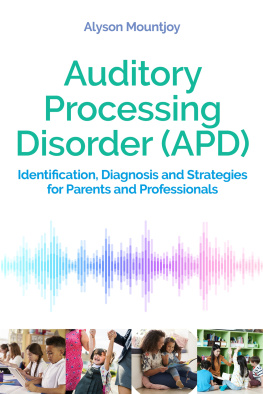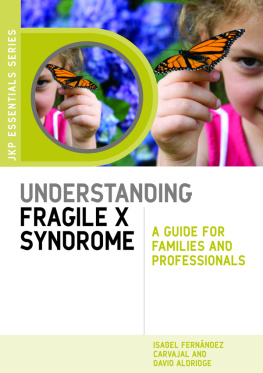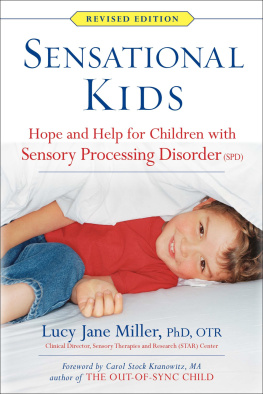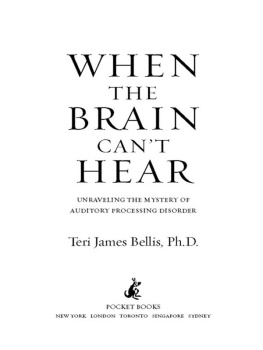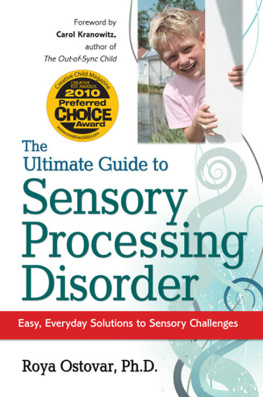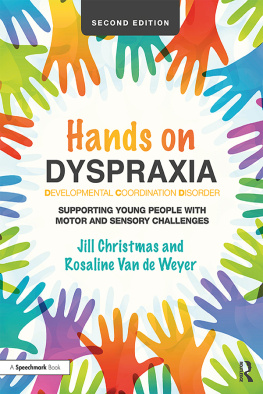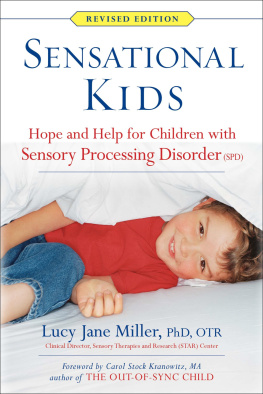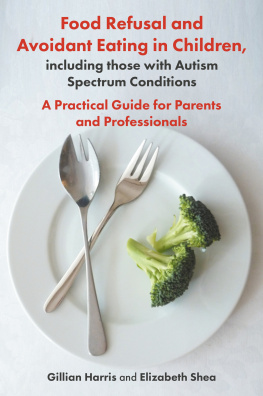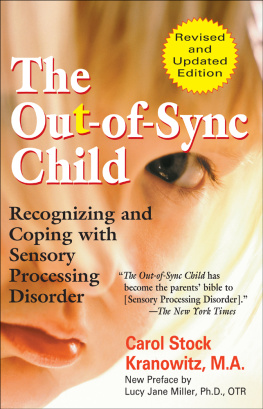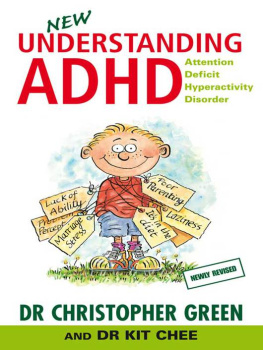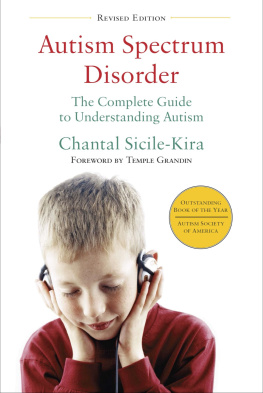Contents

Auditory
Processing
Disorder (APD)
Identification, Diagnosis and Strategies
for Parents and Professionals
Alyson Mountjoy

Contents
Introduction
Behind the book
This book is the culmination of everything I have learned since my journey started almost 20 years ago, when looking for answers for my child. I wrote it because there is currently a lack of accessible, objective information about what it is like to live with APD, but also to dispel any myths and misinformation surrounding APD. There are books by professionals and books by parents about their children. This book discusses everyone with APD from birth to late adulthood. I have tried to explain APD in plain English, to provide answers to the recurring questions that I am often asked with as little jargon as possible (and explaining terms where necessary).
The contents of this book might be dismissed as anecdotal, or the ramblings of someone who is just a parent. On my journey, I have learned two important things. First, there is still no cure for APD, or any APD therapies or treatments that have been reliably, or scientifically, proven to work in any great or lasting way, which is why they are not included in this book.
Second, yes, I am a parent, but I have also worked in administration for the NHS and local government and as a special needs Learning Support Assistant with children with severe Dyslexia, those with emotional and behavioural problems, and a variety of other conditions and learning difficulties. Among other things, I have published resources for children with difficulties in literacy, comprehension and other key skills, and I am also an author of an ongoing series of supernatural fiction novels for adults. I home educated my own gifted child with auditory processing difficulties, visual processing/perceptual difficulties and Hyperacusis from the age of eight, and I suffer from several chronic, disabling health conditions myself.
I have been supporting families affected with APD since 2002, initially as co-founder of the APD voluntary organization APDUK, which disbanded in 2014. I am chair of the unincorporated association APD Support UK, which I founded in 2014, currently the only UK support organization for APD. I also manage five APD-related support groups. I am an invited parent/patient member of both UK and international research projects on APD, and I have co-authored papers on the subject. The point of including all this is that I might just be a parent (and a very proud one), but no one is just one thing. We are all multifaceted and there is so much more to each one of us than any disability or label.
What the book covers
I have heard and read the same comments over and over from hundreds (if not thousands) of parents and adults with APD who have contacted me over the years, via my groups, helpline calls and hosted research chats. Amongst that wealth of first-hand information, I began to see patterns and realized that there are similarities in the difficulties and in the way that APD affects real people, in real-life situations. There are differences due to the unique nature of APD and the effects of other coexisting difficulties, but there are also many similarities that I now know to have already helped to improve the lives of those living with APD and their loved ones.
This book is a guide to their collective knowledge, coping strategies and self-advocacy skills. It explains the value of acceptance and how to support people with APD of all ages, in a variety of situations, plus strategies and observations taken from my own research.
The case studies contain replies to a questionnaire about how APD affects individuals in everyday terms. Parents responded on behalf of their children and teenagers. As much as possible, I have included their replies and those of the adult participants, in their own words (ages are listed at the time of responding). This is because they all explain their experiences far better than I ever could. The case studies reflect the difficulties that affect families and individuals with APD every day, the support they need and how they cope. I am grateful that the participants trusted me with their honest and heartfelt accounts.
The many people I have spoken to have given me hope for a better future for people with APD. The one common factor over the years is their resilience. There is light at the end of the tunnel if you have a map to follow on your journey. I hope that this book will provide that map, that blueprint for success.
Who this book is for
This book was written for the parents who want to understand and support their children, as well as for the adults who have struggled all their lives to understand themselves and get the help they need. It is also for the education professionals who teach children and adults with Auditory Processing Disorder (APD), in the hope that they , too, might grow in knowledge, acceptance and support. Also, it is for home educators striving to provide the best education for their children when the system cannot, and those who have chosen this path for other reasons. Ive been where you are.
It is for the medical professionals too, for those who may not know much about APD, and for those who may have that specialist knowledge, but who want to know more about how it affects their patients in everyday settings; they are the ones who know that living with APD needs far more than just a diagnosis.
I hope that this book will serve as a guide for others as well: the disability advisers, employers, work colleagues, those who work in the benefits system, in fact to anyone who has been drawn to read this book, whether to help yourself or someone else, then this book is for you, and I hope it is helpful.
A diagnosis of auditory processing difficulties means that the severity and/or quantity of difficulties dont meet the criteria for a full diagnosis of APD, but just one difficulty can still have a huge impact on processing and understanding speech, affecting communication in all aspects of life.
using the voucher code ZYASEZE. I strongly recommend that you read them all, to get the full impact of APD on all ages.
The A Plan
The book is set out in what I have found to be a logical order, chronicling the journey from baby to adult. I have set it out in stages, with steps to follow, problems faced and strategies with which to cope and get around them, plus the types of support that people with APD will also need from others along the way. It is a guide on how to live better with APD, and I hope it helps you in some way to do that, or will help others to do so.
When I started on this voyage, it was uncharted, with no accurate testing or diagnosis available in the UK. APD awareness has come a long way since then, but there is more work to be done. I hope this book will help you all to navigate the confusing, distressing world of APD. This book is not my familys journey with APD; it is the knowledge that I have accumulated with the help of so many lovely people, for you to read, learn and share. Although I am based in the UK, the content is just as applicable worldwide.
This A Plan is a list of stages that are needed for the identification, diagnosis, management and support of APD. Each of the chapters in this book describes a vital stage in this process. The A Plan also includes information on how to support APD in various situations. I recommend following all the stages, preferably in the order given below:

